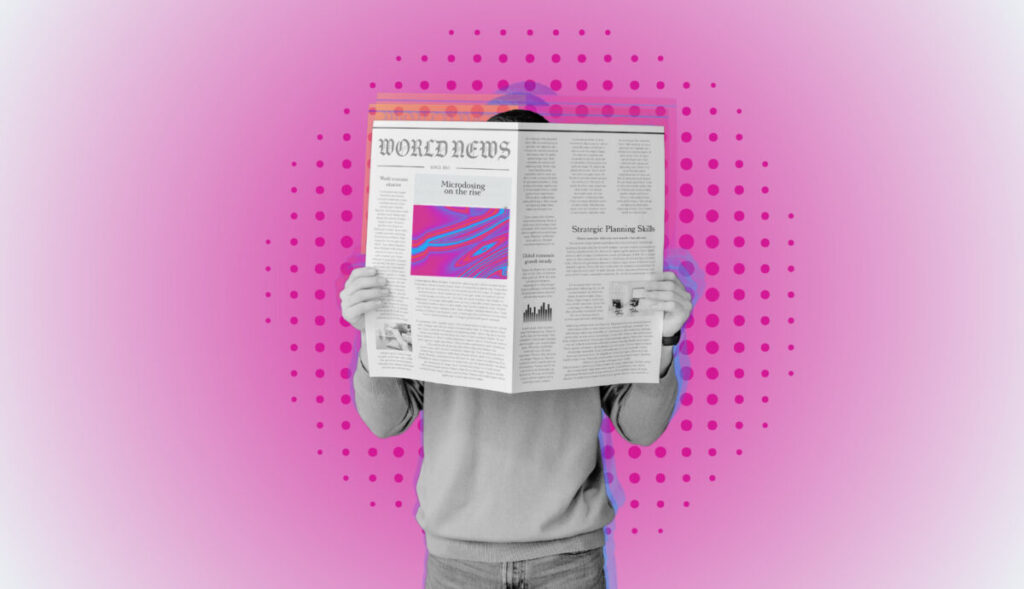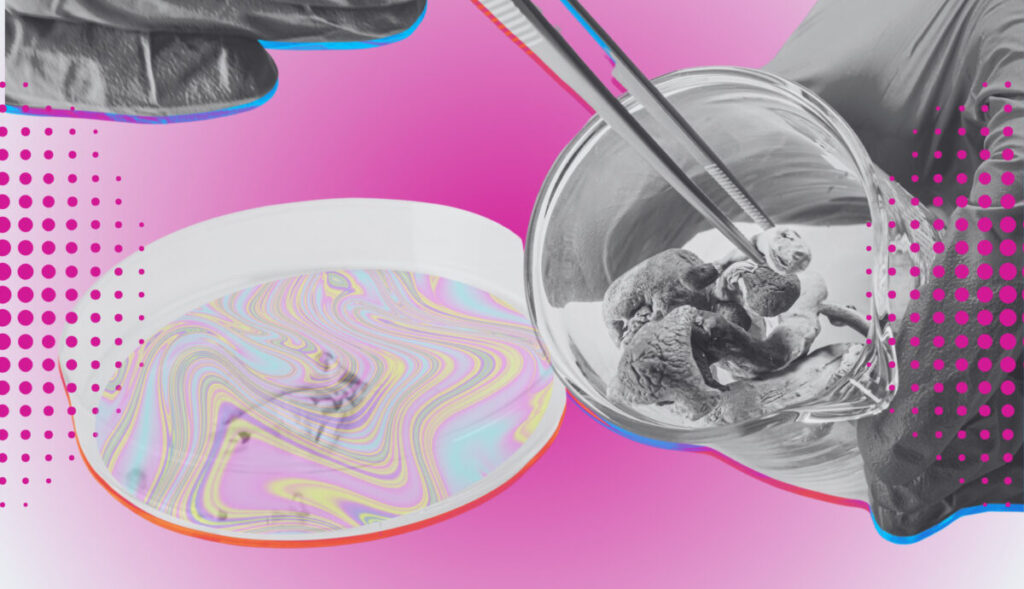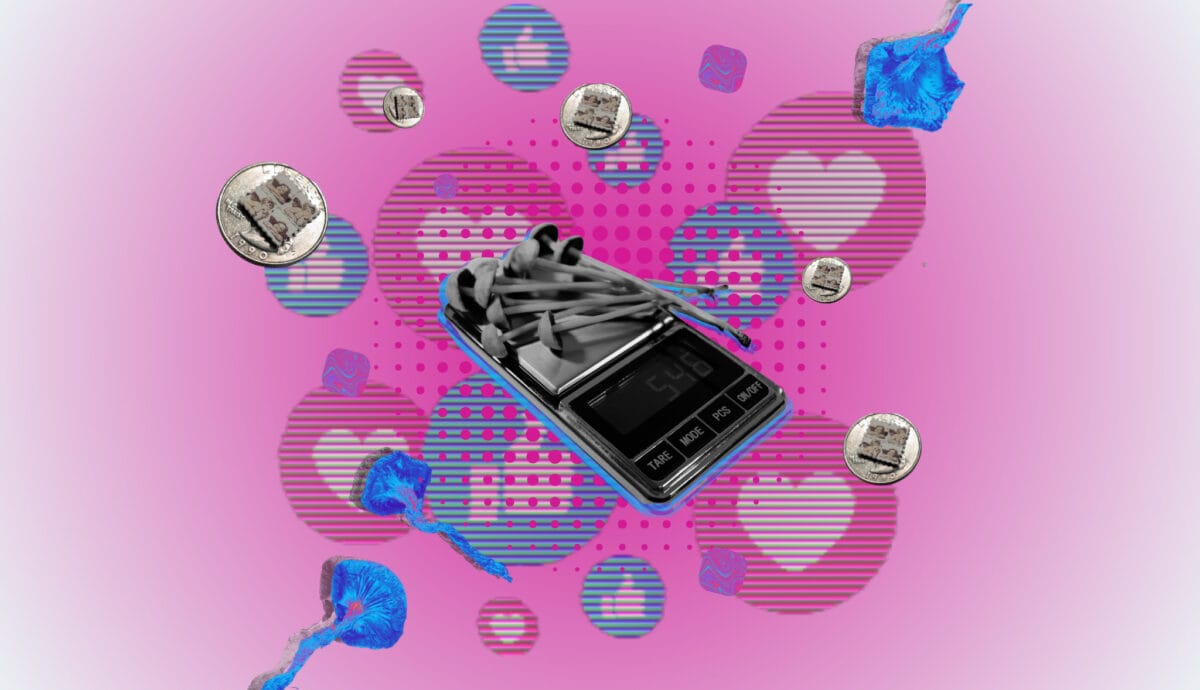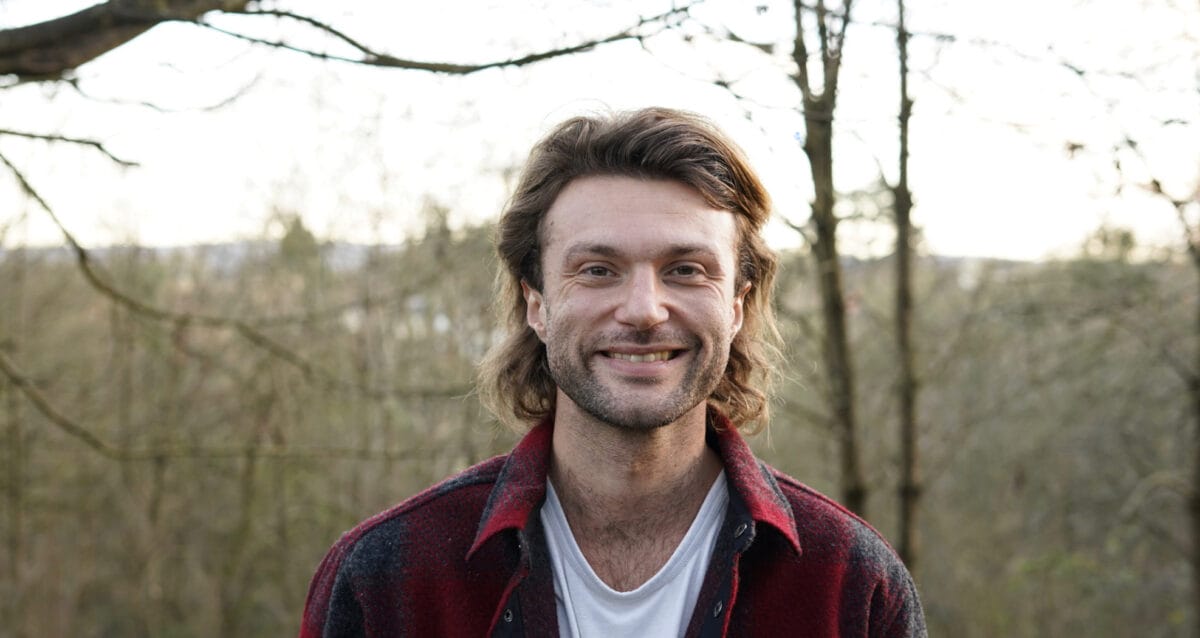In 2024, the discourse around the effects of microdosing psychedelics is deeply polarized.
Positioned at opposite ends of the conversation are microdosing evangelists who swear by its benefits and skeptical scientists demanding more empirical evidence.
Ask whether it ‘works,’ and you’ll receive an emphatic ‘yes’ from believers or an all-but-certain ‘no’ from doubters, highlighting a divide that hinges largely on perspective.
Despite plenty of anecdotal reports attesting to the positive effect of microdosing – the practice of taking sub-perceptual or slightly sensory enhancing doses of psilocybin or LSD on a regular basis for wellbeing, to improve focus or diminish depression – the lack of faith is traditionally rooted in an absence of robust science proving its efficacy. But that could all soon change.

MindBio’s Latest Trial Results: Breakthrough or Overreach?
Preliminary clinical data recently released by MindBio Therapeutics, which conducted a minor trial using LSD, suggests that a small dose of the psychedelic could have an boosting effect on energy and mood while reducing depression symptoms.
“We are delighted to share that MB22001 showed rapid and statistically significant improvements with 60% reduction in depressive symptoms and 53% of patients experiencing complete remission from depression,” said Justin Hanka, Chief Executive Officer of MindBio Therapeutics. “These Phase 2 trial results are transformative for the company as it takes its next steps into late-stage pharma.”
This should all be taken with a grain of salt. The sensationalist manner Mindbio announced the latest microdosing results – which have not yet been released in a scientific paper – provoked the ire of some commentators.
Exploring Microdosing’s Effect on Mental Health
But for the many who have benefitted from the effects of microdosing, it’s only a matter of time before the data corroborates their experiences. I decided to ask my Instagram friends about their experiences.
“I was going through a really hard period at home,” one microdoser said. “I felt almost like the mushrooms held me: Everything softened and I felt safe and held. And, after a while, I felt fine without microdosing and didn’t need it anymore.”
Other microdosers say the practice boosts concentration and productivity, echoing LSD-inventor Albert Hofmann, who suggested that low doses could serve as an alternative to pharmaceutical study drugs like Ritalin.
Decades later, that’s pretty much what is happening. Another microdoser said she uses mushrooms instead of Adderall for focus effects, lending weight to a study released last year which reported that microdosing psychedelics boosted mindfulness among adults with ADHD.
“For me it’s a clean, sustained focus with elevated mood,” she said.
Another microdoser said sub-perceptual psychedelics helped her taper off of SSRI medications.
“I was coming off antidepressants and had a horrendous time,” she said. “The mushrooms were my savior. They took away feelings of negativity and made me feel lighter and more at peace.”

Scientific Scrutiny: Measuring the ‘Real’ Effects of Microdosing
Such reports, however, will do little to convince the doubters. This skepticism is compounded by the trend of bots marauding social media conversations about psychedelics, relentlessly regurgitating pro-microdosing talking points and incessantly hawking magic mushroom capsules. The volume of posts, especially on X, has contributed to claims from psychedelics researchers that microdosing is “ridiculously overhyped and predatory.”
Already, there is survey data indicating that microdosing – popularized in Silicon Valley, but not so mainstream that CEOs can’t be fired for taking LSD before meetings – could be a salve. A 2019 paper containing more than 1,000 user reports from people in dozens of countries notes that spaced but repeated microdoses increases positive moods, alleviates migraines and eases premenstrual symptoms.
Other research – and numerous press reports, which began in 2015 when microdosing first entered cultural consciousness – presents the microdose as a versatile tool for increasing contentment effect and improving cognition.
“As of right now, there are still no published clinical trials investigating microdosing on people diagnosed with mental health issues, so their efficacy as a clinical treatment is unknown,” said Manesh Grin, a postdoctoral psychedelic neuroscientist, University of California, San Francisco.
The survey-based papers “generally don’t measure placebo or expectation effects and aren’t the most reliable,” he added, while “in laboratory studies, where they compare against a control group, people do often experience improvements in mood, anxiety, and other measures but so do the people who get an inert placebo and thought they got a microdose.”
The main challenge of the clinical microdosing studies undertaken so far is that most did not observe patients for any significant period – in which time a microdosing protocol might take effect. Perhaps the most robust microdosing study to date, conducted with LSD in New Zealand by University of Auckland associate professor Dr. Suresh Muthukumaraswamy on 14 patients over six weeks, suggests some benefits that are greater than placebo.
“My sense is that, if there are real effects, they are likely particularly for people who are struggling,” added Girn. “Whether they help people who are already healthy and high functioning is more of an open question, but the data so far suggests the effects might only be modest and largely placebo in most cases.”
Some are less enthusiastic about microdosing’s possible efficacy as they believe larger macrodoses, taken less often, are more effective and that there are emerging business interests behind the dubious bots – and others – who seem to want to sell folks a lifetime of pills. Comparing microdosing to psychedelic therapy brings forward many interesting perspectives.
“High-dose psychotherapy (is) about having this transformative experience that one learns from, whereas microdosing psychedelics would be … a traditional psychiatric medicine model,” psychedelic scientist Dr Matthew Johnson tweeted.
“Common for microdosing fans to say: any skeptic hasn’t tried it. Not true,” he said in another tweet last year. “I’ve know [sic] many people (including a number of scientists) who have taken plenty of psychedelics & are believers in high dose therapeutics, who have tried microdosing a bunch and say, meh, not convinced.”
But microdose advocates still maintain that smaller, more regular doses will be more practical, and cheaper, for most people than the hair-raising visionary trips scientists propel themselves into.
Hanka says his company’s data – from a new study led by Muthukumaraswamy – is promising, but that ultimately the jury is still out.
“I’d really like to know for sure that these drugs work better than antidepressants with lower side effects and that is exactly what we are trying to find out,” he said. “I am open minded and will be completely led by the data as we step through clinical trials.”
Studying the effects of a sub-perceptual medicine while calculating the impact of brain power may always be tricky, and the success of any microdose, self-help regime comes down to the intentions and discipline of the microdoser. But I don’t think my Instagram friends are tripping. They didn’t take large doses after all.
Interested in doing your own self-exploration? Consider our Microdosing Masterclass, your complete guide to understanding and integrating the best practices for effective microdosing.


